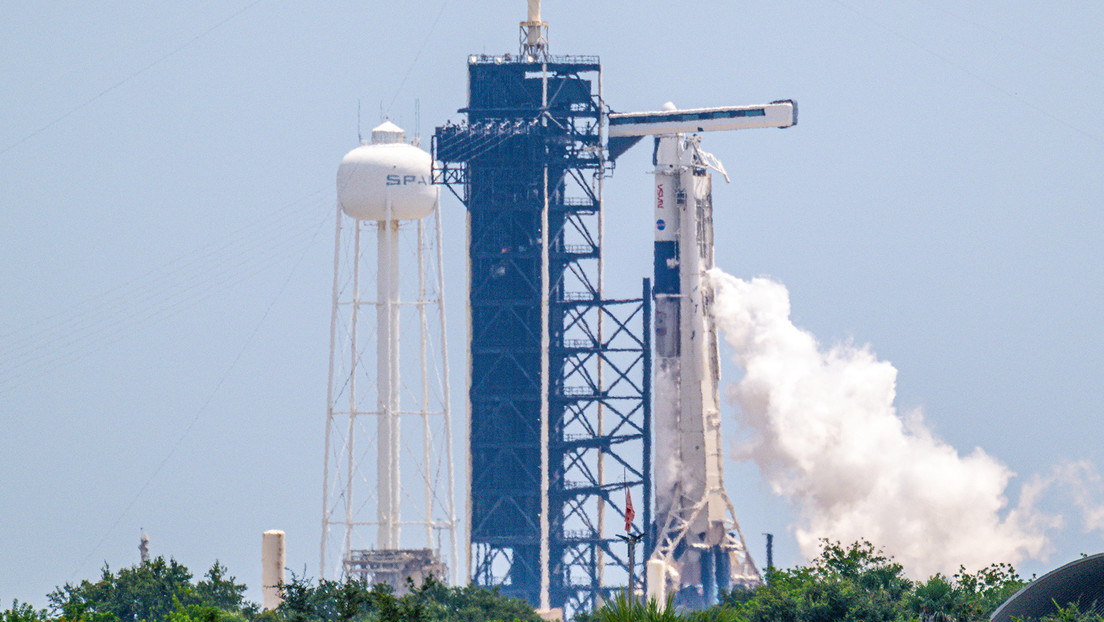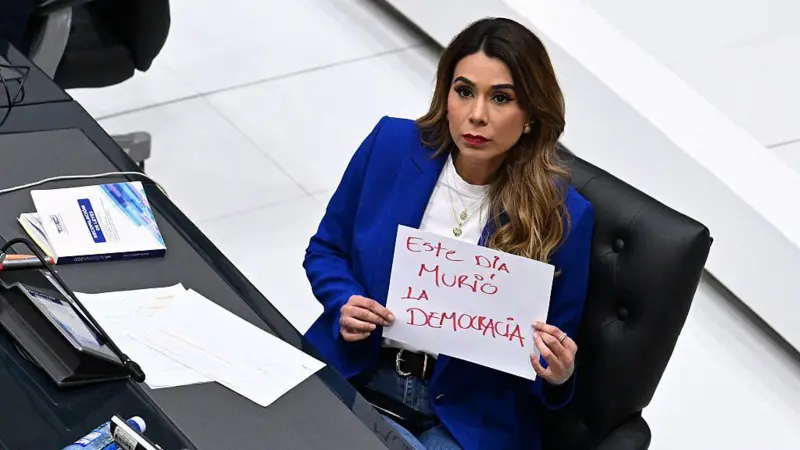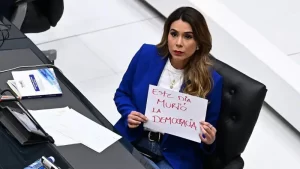A
(CNN)When thousands of Russians lined up in Moscow’s busy Pushkin Square on January 31, 1990 to enter the country’s first-ever branch of McDonald’s, the moment represented a seismic cultural shift.The Iron Curtain, which had divided Eastern and Western Europe for decades, had only just collapsed. Now the fast-food chain beloved by Americans and many others could serve up Big Macs to Russian customers.
ll rights reserved
.
Thirty-two years later, McDonald’s has nearly 850 branches across the country. But on Tuesday, it announced their doors would close. Like many other big Western brands, including IKEA, H&M, Coca-Cola and Starbuck’s, McDonald’s has decided to suspend its operations in Russia in response to Moscow’s invasion of Ukraine. PepsiCo has also said it will stop selling some of its products there, including Pepsi Cola and 7-Up.
Of course, Russians can choose to eat elsewhere and buy other goods — many homegrown chains have sprung up across the vast country since the demise of the Soviet Union.
But the decision of these international brands to suspend trading in Russia — following several rounds of punishing Western sanctions and massive public pressure on moral grounds — still represents the end of an era.»Coke, Pepsi, McDonald’s were the symbols of westernizing Russia, Russia opening to the world. And the fact that these companies are leaving… signals and highlights the extent to which Russia is closing and turning inwards,» said Gulnaz Sharafutdinova, a professor of Russian politics at King’s College London’s Russia Institute.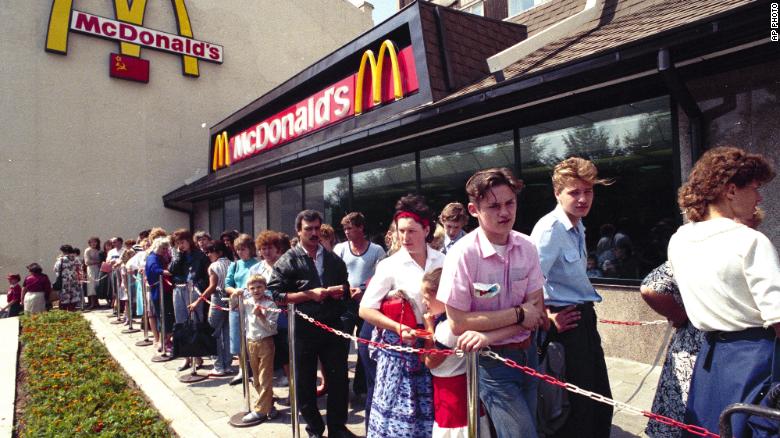 Russians wait in line outside a McDonald’s fast food restaurant in Moscow in 1990. That first McDonald’s on Pushkin Square, known as Pushkinskaya Square to Russians, seated 700 diners and was for years the company’s largest outlet anywhere in the world. Young middle class Russians growing up in the 1990s saw McDonald’s as somewhere cool and alluringly foreign, a restaurant where you’d take friends to celebrate special birthdays.As the 21st century rolled on, the chain seemed a less potent symbol of American culture but remained a favorite venue for Russian college students to meet for affordable lunches or dates, and offered a fast, cheap dining option for others. Its branches also gave job opportunities to tens of thousands of Russians.All that is now gone, at least for the foreseeable future. «Our values mean we cannot ignore the needless human suffering unfolding in Ukraine,» said McDonald’s chief executive Chris Kempczinski in a message to staff Tuesday announcing the company’s suspension of operations in the country. He added that it was «impossible to predict» when its restaurants might reopen. CNN has reached out to McDonald’s for confirmation of the final closing date for its restaurants but has not yet had a response.»Whether it is an end of an era or not, it’s hard to say right now, many observers do fear that it might be, and that will depend on how long it will take Russia to go through the difficult, dark, toxic authoritarian-slash-totalitarian dictatorial period,» said Sharafutdinova by phone. «We are also pretty clear that to shift away from this will take a lot of effort — social, political, economic, and leadership.»
Russians wait in line outside a McDonald’s fast food restaurant in Moscow in 1990. That first McDonald’s on Pushkin Square, known as Pushkinskaya Square to Russians, seated 700 diners and was for years the company’s largest outlet anywhere in the world. Young middle class Russians growing up in the 1990s saw McDonald’s as somewhere cool and alluringly foreign, a restaurant where you’d take friends to celebrate special birthdays.As the 21st century rolled on, the chain seemed a less potent symbol of American culture but remained a favorite venue for Russian college students to meet for affordable lunches or dates, and offered a fast, cheap dining option for others. Its branches also gave job opportunities to tens of thousands of Russians.All that is now gone, at least for the foreseeable future. «Our values mean we cannot ignore the needless human suffering unfolding in Ukraine,» said McDonald’s chief executive Chris Kempczinski in a message to staff Tuesday announcing the company’s suspension of operations in the country. He added that it was «impossible to predict» when its restaurants might reopen. CNN has reached out to McDonald’s for confirmation of the final closing date for its restaurants but has not yet had a response.»Whether it is an end of an era or not, it’s hard to say right now, many observers do fear that it might be, and that will depend on how long it will take Russia to go through the difficult, dark, toxic authoritarian-slash-totalitarian dictatorial period,» said Sharafutdinova by phone. «We are also pretty clear that to shift away from this will take a lot of effort — social, political, economic, and leadership.»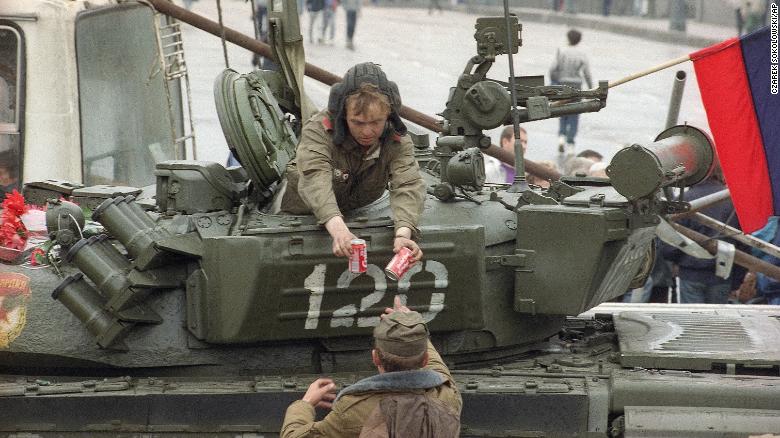 A soldier gives two cans of Coca-Cola to a tank driver near the Russian Federation building in Moscow, August 21, 1991.
A soldier gives two cans of Coca-Cola to a tank driver near the Russian Federation building in Moscow, August 21, 1991.
Reputational wound
Many ordinary Russians are still reeling from the shock of events over the past two weeks. With news coverage of the war tightly controlled by the state, it’s hard to take stock of exactly how much their world has changed with the imposition of Western sanctions.But economic pain is already being felt as the ruble’s value crashes and bank controls tighten. While some wealthy Russians scrambled to sell assets abroad and even to leave the country while they still could, the less affluent have fewer options.
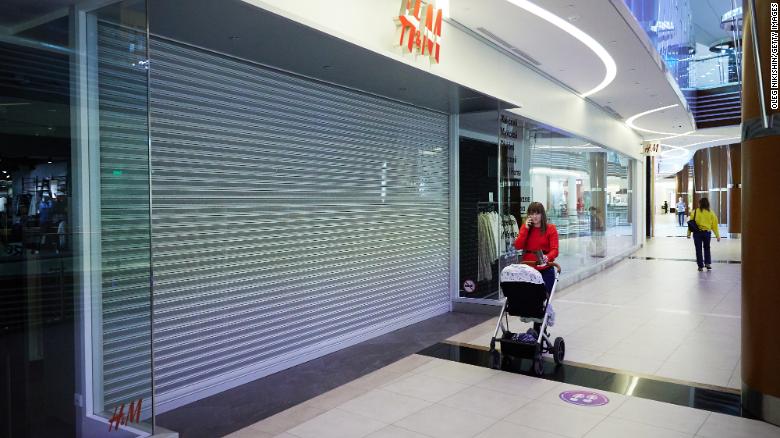
The most immediate impact will obviously be on those who work for the Western companies who’ve suspended their operations, although there have been promises of continued support from their employers.In his statement, Kempczinski said the 62,000 staff in Russia «who have poured their heart and soul into our McDonald’s brand to serve their communities,» would continue to be paid. He also noted the impact on «hundreds of local, Russian suppliers and partners who produce the food for our menu and support our brand.»Swedish furniture giant IKEA, which first opened its doors on Russian soil in 2000 and now has 17 stores across the country, said its decision to pause all exports and imports in and out of Russia and Belarus and to stop all IKEA operations in Russia, would have a direct impact on 15,000 workers.»The ambitions of the company groups are long term and we have secured employment and income stability for the immediate future and provide support to them and their families in the region,» IKEA said in a statement.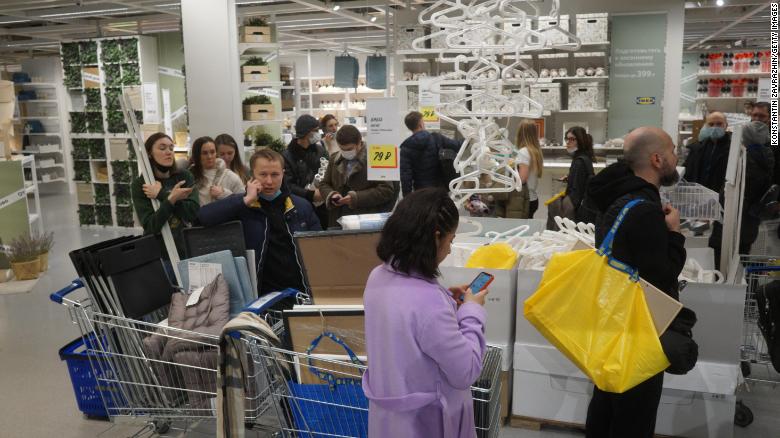 Shoppers wait in a line to pay for their purchases at the IKEA store March 3, 2022 in Moscow.For other Russians, the impact, while less direct, is likely to be demoralizing on two levels, said Tomas Chamorro-Premuzic, professor of business psychology at University College London. Firstly, they will lose access to products and services they enjoy — but also, and perhaps more painfully, they will feel the reputational wound of being «ostracized by the world, and vilified,» he said by email.Of course, the response across different sections of Russian society will vary, Sharafutdinova points out. Some of the companies suspending their operations in Russia are luxury brands whose products would have been out of reach for the vast majority of Russians.But others, like IKEA, or Starbucks, or even McDonald’s, «were places that were visited and used and consumed by Russia’s middle classes» in urban areas on a regular basis, she said, and their loss will affect large numbers of people. «There will be replacements but it is yet another symbol of middle class for the Russians and they will be losing that access,» she said.Outside those urban areas, where views are more cosmopolitan, the reaction is more likely to be one of defiance in the face of sanctions, Sharafutdinova added, with the West seen as turning against Russia. Those Russians «would consider themselves to be sort of Russian patriots who care about Russia’s national interests, because that’s how the government presents that… they will be in a defiant mode and consolidate behind the leadership and say, ‘Okay, it’s better that we will build our economy,'» she said.Russian President Vladimir Putin on Friday insisted that Western sanctions represented an opportunity for Russia’s $1.5 trillion economy, the 11th largest in the world.»Recent years have shown that where Westerners imposed restrictions against us, we acquired new competencies and restored old ones at a new technological level,» Putin said, speaking alongside Belarusian leader Alexander Lukashenko in Moscow.»This is a time of opportunity to move towards strengthening technological and economic sovereignty,» Putin added.
Shoppers wait in a line to pay for their purchases at the IKEA store March 3, 2022 in Moscow.For other Russians, the impact, while less direct, is likely to be demoralizing on two levels, said Tomas Chamorro-Premuzic, professor of business psychology at University College London. Firstly, they will lose access to products and services they enjoy — but also, and perhaps more painfully, they will feel the reputational wound of being «ostracized by the world, and vilified,» he said by email.Of course, the response across different sections of Russian society will vary, Sharafutdinova points out. Some of the companies suspending their operations in Russia are luxury brands whose products would have been out of reach for the vast majority of Russians.But others, like IKEA, or Starbucks, or even McDonald’s, «were places that were visited and used and consumed by Russia’s middle classes» in urban areas on a regular basis, she said, and their loss will affect large numbers of people. «There will be replacements but it is yet another symbol of middle class for the Russians and they will be losing that access,» she said.Outside those urban areas, where views are more cosmopolitan, the reaction is more likely to be one of defiance in the face of sanctions, Sharafutdinova added, with the West seen as turning against Russia. Those Russians «would consider themselves to be sort of Russian patriots who care about Russia’s national interests, because that’s how the government presents that… they will be in a defiant mode and consolidate behind the leadership and say, ‘Okay, it’s better that we will build our economy,'» she said.Russian President Vladimir Putin on Friday insisted that Western sanctions represented an opportunity for Russia’s $1.5 trillion economy, the 11th largest in the world.»Recent years have shown that where Westerners imposed restrictions against us, we acquired new competencies and restored old ones at a new technological level,» Putin said, speaking alongside Belarusian leader Alexander Lukashenko in Moscow.»This is a time of opportunity to move towards strengthening technological and economic sovereignty,» Putin added.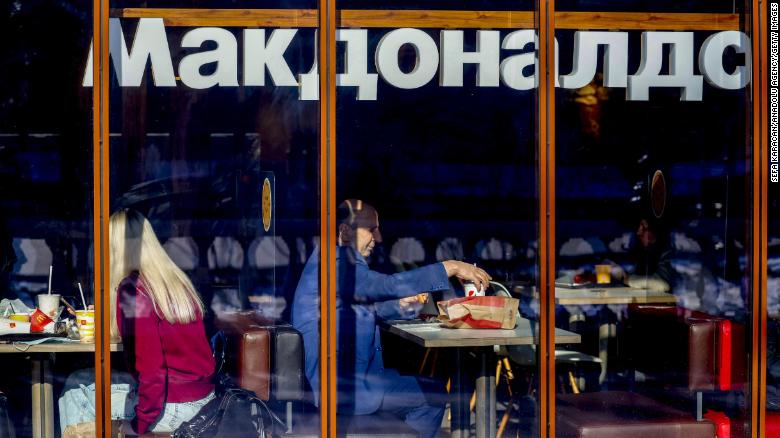 People are seen at a McDonald’s restaurant in Moscow on March 9, 2022.
People are seen at a McDonald’s restaurant in Moscow on March 9, 2022.
Job losses
Some in Russia are responding to the pullout by Western brands with dark humor. New memes are making the roundson social media, such as one suggesting that IKEA’s giant plush sharks, for which there was previously a craze in Russia, should have been stockpiled, or indicating that food from McDonald’s is now being sold on Avito, a Russian equivalent of eBay or Craig’s List.

China’s amateur investors are betting big time on a boost to Russian trade One Twitter user posted a picture of people queuing outside the Pushkin Square McDonald’s back in 1990 with the ironic caption (in Russian): «Moscow, the opening of a McDonald’s restaurant, March 2025.»Nonetheless, the symbolism of the world’s withdrawal from Russia will have an emotional and psychological impact, Chamorro-Premuzic said.»It’s not really about the functional loss of paying more for furniture or not having your favorite burger or coffee, but the fact that you have become public enemy number one. With any bad leader or despotic ruler, it is the country’s citizens who suffer the most.»Job losses may also follow if companies decide to close down operations permanently, rather than just suspending them, added Chamorro-Premuzic. «These are big employers and just like they created many jobs when they came, the jobs will go if they leave,» he said.But this does not mean those companies will bid farewell to Russia forever. The companies could, of course, «very easily return if there are significant political changes, government changes, changes of reputation,» said Chamorro-Premuzic.
«Of course it is a big market for companies, so they will have the same incentive to go back than they had to go there the first time. So, if there is no moral or brand reputation impediment, they will return.»
Meanwhile, according to Putin, Russia and Belarus will get through the difficulties presented by sanctions and will even «acquire more competencies, more opportunities to feel independent, self-sufficient, and ultimately benefit [from them], as it was the case in previous years.»
Fuente: CNN,EEUU


